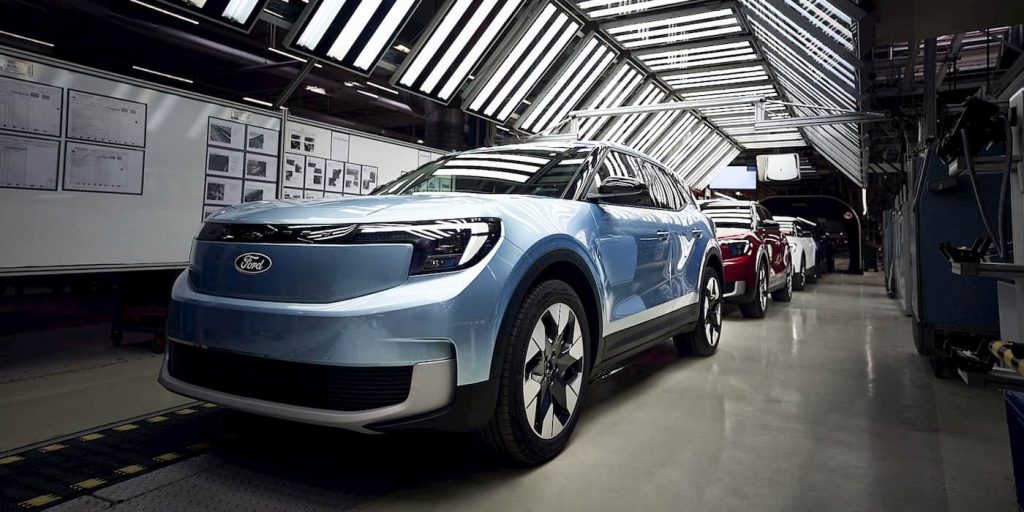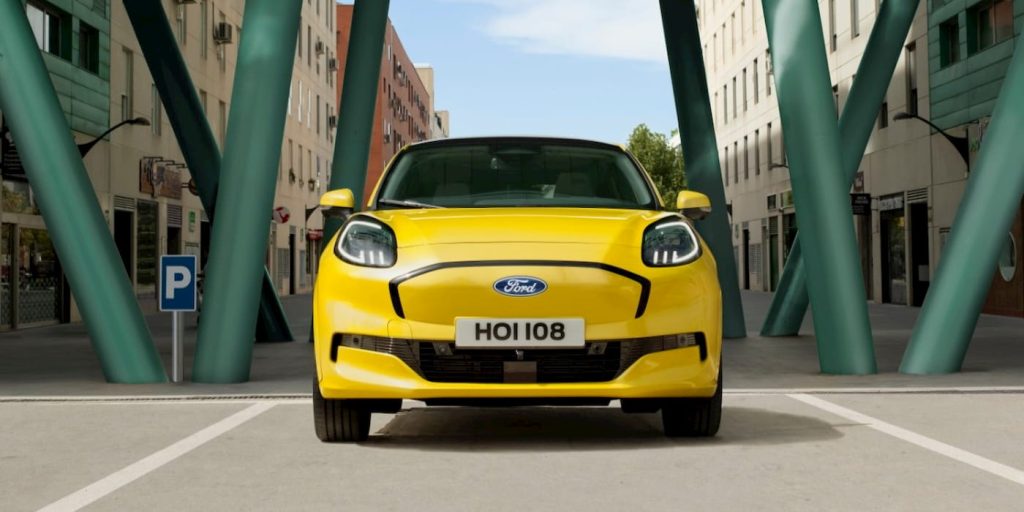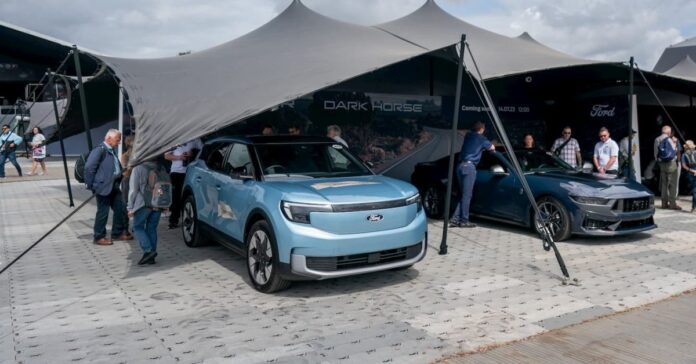Ford is struggling to stay afloat in Europe. The company is restructuring its business overseas with plans to drastically reduce its workforce. With slowing orders and weak demand for its EVs, many doubt Ford’s future in the region. A new survey underlines “how strong the doubts about Ford’s future viability in the European car market” are.
Why skepticism over Ford’s future in Europe is spreading
Last month, Ford announced plans to cut another 4,000 European jobs by 2027. The lower headcount is part of the company’s restructuring plans in the region.
Ford has incurred “significant losses” over the past few years in Europe as the “highly disruptive” market shifts to electric. The American automaker blamed the job cuts on lower-than-expected demand for EVs and a weakening economy.
Ford said the planned cuts will mainly affect Germany, while other European markets will see “minimal reductions. “
According to a new survey, skepticism about Ford’s future in Europe is rising. The study from Berlin-based Civey for Automobilwoche shows that nearly half (45%) of respondents expect poor results. Only 5% were “rather optimistic,” while another 37% were undecided.
“The results of the survey underline how strong the doubts are about Ford’s future viability on the European car market,” Civey’s Lead Customer Success Manager, Christian Riedl, explained.

Riedl said the widespread skepticism is partly due to Ford’s EV strategy, or lack thereof. Civey’s expert added, “Specially with regard to electromobility and innovation, many expect Ford to take clear steps to position itself for the future.”
According to Riedl, the large number of undecided “offers the brand the opportunity to strengthen its position. ” However, that will require “a convincing vision and visible progress.”

After the first Capri EV model rolled off the assembly line at its Cologne plant in July, Ford is already slowing production. The company is reducing output of its two EV models based on Volkswagen’s MEB platform, the Electric Explorer and Capri.
Earlier this month, Ford introduced the all-electric version of its best-selling vehicle in Europe, the Puma Gen-E, as it looks to boost demand.
Electrek’s Take
Ford is facing stiff competition from Chinese EV makers like BYD, which continues to gain ground. A recent Bloomberg study pointed out BYD is quickly closing in on Ford in global deliveries. The Chinese EV leader could even surpass the American automaker by the end of the year.
BYD’s cheapest EV, the Seagull, was the best-selling vehicle (including gas-powered cars) in China again last month, beating out Tesla’s Model Y.
With a wave of new low-cost EVs arriving in China, BYD and other EV makers are looking overseas for growth. The influx of Chinese electric cars is pressuring global auto leaders to take drastic measures.
A new Nikkei report on Tuesday claimed Honda and Nissan are closing in on an EV merger to survive the transition. Which automaker will be next? Could Ford team up with another European partner or expand ties with VW? Let us know what you think in the comments below.


